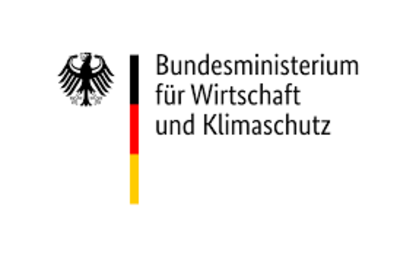AWEC++
![[Translate to English:] avec++ wasserstoff titelbild [Translate to English:] avec++ wasserstoff titelbild](/fileadmin/_processed_/4/9/csm_AVEC_66f4e87fb8.jpg)
The AWEC++ project aims to develop the next generation of alkaline water electrolysis (AEL) in order to make the production of green hydrogen more efficient and sustainable. The project is being implemented by a consortium of leading industrial and research partners as part of the Federal Ministry for Economic Affairs and Energy's (BMWi) “Hydrogen” technology offensive.
Objectives of the project: AWEC++ focuses on the development of electrolysis cells that remain stable at higher temperatures (up to 180 °C) and pressure conditions (up to 35 bar). This innovation achieves a significantly higher power density (> 1000 mA cm-2), which improves the efficiency and cost-effectiveness of hydrogen production. At the heart of these electrolysis cells is a novel stack design with ceramic, plasma-sprayed membrane electrode assemblies (MEAs) as well as laminated 3D electrodes and specially processed bipolar plates.
The further development of the technology enables
- Halving of investment costs (CAPEX) through higher H2 production rates at constant costs.
- Dynamic adaptation to volatile renewable energies, enabling a fast response (within 500 milliseconds).
- Scalable production with sustainable, automatable processes for over 150 GW of installed capacity.
Project consortium: The consortium consists of leading companies such as Paul GmbH & Co. KG, MUW Screentec GmbH, Fraunhofer IKTS, Merkle CAE Solutions GmbH, SITEC Industrietechnologie GmbH and AP-Miniplant GmbH & Co. KG. The project is supported by associated partners such as SAMAG Saalfelder Werkzeugmaschinen GmbH, RWE Generation SE and the WIR! alliance h2-well.
Innovation focus: The combination of new materials and production technologies enables the production of hydrogen with lower costs and a better environmental balance. By dispensing with expensive precious metals and making the materials highly recyclable, AWEC++ contributes to sustainable energy generation.
The project runs from August 2022 to July 2025 and aims to develop a 20 kW demonstrator that represents the next generation of alkaline electrolysis and lays the foundations for industrial production.
The role of Merkle CAE Solutions in the AWEC++ project is the simulation and analysis of the electrolysis processes as well as the development and optimization of the components for the demanding alkaline electrolysis. Specifically, Merkle CAE Solutions focuses on the following tasks:
1. Simulation of electrochemical and fluid mechanical processes:
- Merkle CAE Solutions supports the project by simulating the behavior of the electrolysis cells and the stack. This includes structural mechanics and fluid mechanics analysis to ensure that the components can withstand the extreme operating conditions (high temperatures and pressures).
- We help to optimize pressure losses, cooling, gas flows and electrical conductivity within the stack.
2. Support in the development and validation of components:
- Merkle CAE Solutions performs simulation-based testing to examine how different materials and designs perform under real-world operating conditions. This includes the end plates and bipolar plates, which must ensure mechanical stability and contact pressure for the electrolysis stack.
3. Validation of the stack design:
- We simulate the performance of the entire electrolysis stack and help to ensure that the design works efficiently in practice and can be operated safely.
4. Long-term analyses and operating simulations:
- Merkle CAE Solutions performs operational simulations of the electrolyzer to test stability and efficiency over long periods of operation. These simulations help to identify potential problems such as corrosion, material fatigue and performance losses at an early stage.
Overall, Merkle CAE Solutions plays a crucial role in ensuring the performance and reliability of the electrolyzers and enabling scaling to industrial applications.
Project type:
Project sponsor PTJ Jülich
Hydrogen Technology Initiative of the Federal Ministry for Economic Affairs and Energy (BMWi). This initiative is part of the German government's 7th Energy Research Program, which aims to support innovative technologies for the promotion of green hydrogen.
Project partner:
Merkle CAE Solutions GmbH
Paul GmbH & Co. KG
MUW Screentec GmbH
Fraunhofer IKTS
SITEC Industrietechnologie GmbH
AP-Miniplant GmbH & Co. KG
Period:
2023 - 2025
Acronym/funding identifier:
AWEC++
03EI3076E
Project sponsor
